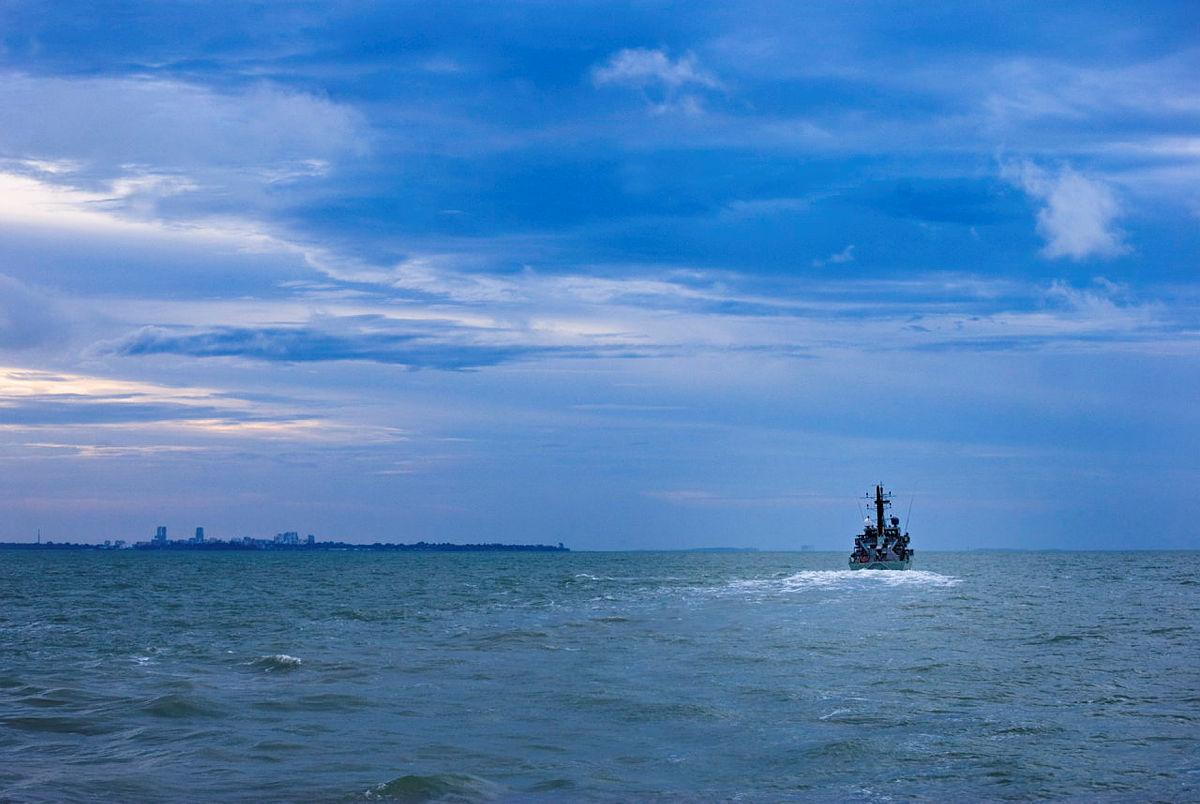A belt and road by any other name: Government must review Darwin Port lease
Posted By Luke Gosling on September 15, 2020 @ 06:00

The Australian government says its new foreign relations bill is about one thing: ensuring foreign policy consistency by reviewing state and territory deals that could undercut Canberra.
Fair enough. Foreign policy is a federal—and constitutionally enshrined—responsibility. State and territory governments have been increasingly active in international engagements in recent decades. That’s a perfectly normal feature of globalisation that’s here to stay.
But there’s good reason to keep foreign policy powers concentrated in federal hands.
Thanks to its expertise, real-time reporting from the overseas diplomatic network and intelligence collection and assessments from all sources, the federal government will always be the best informed about the world and the custodian of Australia’s strategic policy.
A state like Queensland or New South Wales cannot be expected to have anywhere near the same situational awareness when making commercial deals with foreign powers. And in a dangerous world, hostile actors will seek to divide us. So, let’s not help them.
If this bill helps reverse the hollowing out of our capacity to prosecute Australia’s national interests, I’m all in. That would need to include a serious discussion about the chronic cuts to our frontline diplomatic network and aid program. But what concerns me is the clear political slant in this bill.
From the get-go, the government framed Victoria’s 2018 memorandum of understanding with China [1] on the Belt and Road Initiative as the main problem that needed fixing. To be clear, the federal Labor leader, Anthony Albanese, has said that we would not have signed up to the BRI.
It’s curious, though, that the government is waving the Victorian deal like a red rag while ignoring other BRI-related deals that are in plain sight. Like the lease of the Port of Darwin. To avoid blatant double standards, Darwin should be in the same conversation as Victoria.
‘No, it shouldn’t!’ the government is now saying. The foreign minister has explicitly denied that Darwin Port would be reviewed as part of this bill. Marise Payne has claimed that this is because the 99-year lease of the port by the NT government was to a privately owned Chinese company, Landbridge Group, not a government entity. The bill excludes [2] ‘a corporation that operates on a commercial basis’.
Yet it doesn’t take a degree in Sinology to understand that Western and Chinese private companies differ in important ways. In the Chinese system, outbound investors must register deals for approval with three government bodies, including the trade ministry. A private company that owns critical infrastructure abroad is still accountable to Beijing.
This is confirmed by private companies’ mandatory reporting requirements under China’s national intelligence law. Just last year, a Foreign Investment Review Board source [3] suggested that the Chinese law had effectively ‘done away with the distinction between private and state-owned companies’.
Even if the government dismisses any questions around the lease of a critical infrastructure asset like Darwin Port to a foreign power, be it China or Canada, there’s a bigger issue. You won’t hear the government say this openly for obvious reasons—it oversaw the sale—but the 2015 lease of Darwin Port was part of the Belt and Road Initiative.
Officially, the Darwin Port sale wasn’t badged as a BRI project. But it was undoubtedly part of it from Beijing’s point of view, even if not from ours. For more than a decade, China has been buying up critical infrastructure such as ports around the world. But this strategic buy-up was given an authoritative policy rationale when Chinese President Xi Jinping launched his flagship Belt and Road Initiative in 2013.
That’s when China’s ports buy-up officially became part of the seagoing aspect of the BRI, dubbed the Maritime Silk Road. Confusingly, the ‘road’ part of the initiative is actually maritime. Through this BRI-propelled strategy, Chinese private or state-owned companies quickly acquired significant or controlling stakes in more than 76 ports in 35 countries, including Darwin and Melbourne.
So it should not have come as a shock to the government when, a month after the Darwin Port lease, Landbridge owner Ye Cheng openly spoke in the media [4] about Beijing being interested in Darwin primarily in the context of the BRI.
This government has said that it considers Victoria’s BRI deal to be inconsistent with its foreign policy. But when it comes to our strategic northern port, that concern vanishes into thin air. For some reason, the BRI is against the national interest in one jurisdiction but fine in another.
China is an important partner for Australia. But who owns our critical infrastructure is not a question about our relationship with China. It’s about our sovereignty. Of China’s 34 ports, none are foreign-owned and you can bet none will ever be. That seems consistent to me.
If it’s worried about policy consistency, the government should start by reviewing the Darwin Port deal.
Article printed from The Strategist: https://aspistrategist.ru
URL to article: /a-belt-and-road-by-any-other-name-government-must-review-darwin-port-lease/
URLs in this post:
[1] 2018 memorandum of understanding with China: https://www.vic.gov.au/victorias-china-strategy
[2] bill excludes: https://www.theguardian.com/australia-news/2020/sep/09/government-faces-test-on-australian-sovereignty-over-port-of-darwin-liberal-senator-warns
[3] a Foreign Investment Review Board source: https://www.afr.com/policy/foreign-affairs/no-such-thing-as-a-private-company-in-china-firb-20190116-h1a4ut
[4] spoke in the media: https://www.afr.com/world/asia/how-landbridges-purchase-of-the-darwin-port-killed-perceived-wisdom-on-china-20170706-gx66r8
Click here to print.